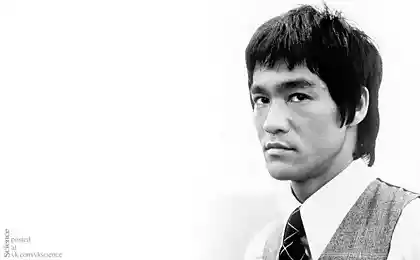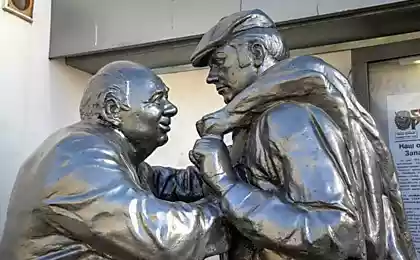371
Some interesting facts about the middle name

In some countries the initials of a person consists of three initial letters of surname, name and patronymic. By the way patronymic from which we can learn, what was the name of the progenitor, but rather his father, is not applicable in all countries of the world. Many people it is a good feeling, living for centuries and no middle name. But we want to talk about and to focus on those countries where the middle name plays the same role in a person's life, like his name.
For example, in Russia since ancient times starting with 945 used the middle name along with the name, and it went something like this: Gregory Vladimir's son or Peter's son.
The old Russian princes was called not only father, but also the names of all ancestors beginning with father, grandfather, great-grandfather and so on until the original founder of the clan. And what of the mentioned names was more, the genus was considered more ancient and more respected by the people. For example, Prince Vladimir of Kiev was called: the Prince Vladimir, son of Svyatoslav, grandson of Vsevolod, grandson of Oleg, the great-grandson of Svyatoslav, grandson of Yaroslav, prapramen of Vladimir the great. Traditionally, a more simplified version, between their loved ones and friends in the conversation, respectfully addressed to the head of the family only by father. Thus, as it simultaneously honoring not only the owner but also his father. Was registered and such cases what middle name was given to the child on behalf of the mother, for example, Yegor Efrosinia. But such cases were few. This practice in Russia not caught on and disappeared, but there are still used in our days such peoples as Jews and Scandinavians.
In our time in Russia, the patronymic is given to the child on behalf of his father, but only as it is growing and achieving some life goals and privileges. And while he's a child and a teenager were treated mostly by first name or last name.
The Arabs of the patronymic in men is added the particle "bin". For example, Ibn Muhammad, that is the son of Muhammad. Arab women by first name called very rarely, a particle applied to the patronymic name is put as "bint" translated daughter.
The Jews added the patronymic particle "Ben" and "bar" in Hebrew means " son." Sounds, in practice it's like this: Shimon Ben Yochai, that is Shimon the son of Yochai.
To the Irish and Scottish well-known ancient names of the added particle "Mac". By the way Irish patronymic with the time was regarded as secondary identification in the system of old Irish compound name, and subsequently simply disappeared and turned into a modern name.
But there is in the world and the exceptions that are dictated only by the whim of one person. For example, there is such a resident of the city of Serov named Sergei, who in his middle name decided to perpetuate the memory of not only father but also mother. Thus his middle name now sounds like Vero Viktorovich.
The use of patronymics in the people is common to many cultures of the world. The wide distribution they received in languages such as: Arabic, Icelandic, Mongolian, East Slavic and Bulgarian.published
P. S. And remember, just changing your mind — together we change the world! ©
Source: allfreefoto.ru
Discovered a hidden connection between the brain and the immune system
The world of birds of Brazil the eyes of Guy Laramée























